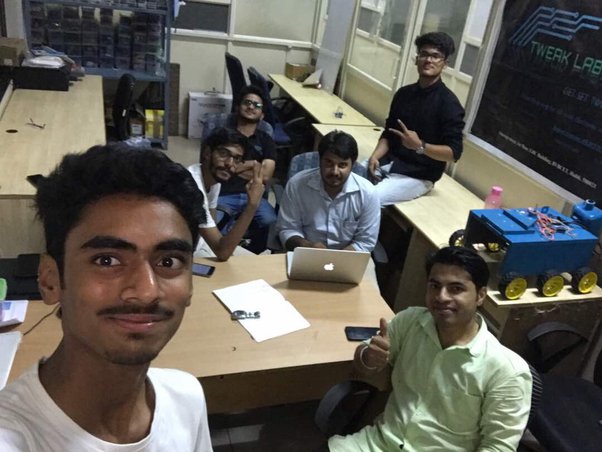Empowering Tomorrow: Navigating the AI Landscape in Education and Beyond
by sathishk
AI is not a distant vision of the future; it has already permeated our lives, reshaping industries and challenging conventional notions of work and innovation. In the ongoing dialogue about AI, there are two prevalent perspectives: one prophesizes a future where AI replaces human roles and responsibilities, while the other dismisses AI as a mere buzzword, suggesting that it lacks the transformative power to bring about substantial change. As professionals navigating this evolving landscape, it is crucial to refrain from taking extreme sides and instead strive to understand the nuanced reality that lies somewhere in between.
To unravel this complex narrative, let’s delve into the historical timeline and evolution of computer science, a journey that provides valuable insights into the trajectory of AI and its transformative capabilities.
Evolution of Technology Accessibility
The journey of technology accessibility has witnessed remarkable transformations, bringing computational power from the hands of a privileged few to the fingertips of the common man.
Early Days: From Exclusive to Expensive
In the nascent days of computing, colossal machines with intricate setups were the exclusive domain of the affluent and privileged. Computational power was a luxury, and only a select group of scientists and researchers had access to these behemoth systems.

Desktops and Laptops: Breaking Corporate Barriers
The advent of desktops and laptops marked a significant shift. Larger corporations led the charge in software development, yet the barrier began to crumble. Software developers emerged as the bridge, making computational power more accessible. This era laid the foundation for a democratization of technology, as developers became instrumental in bringing the power of computation to a broader audience.

Cloud and Opensource: The Startup Revolution
A disruptive wave swept in with the rise of cloud computing and open-source technologies. Reduced setup costs and the elimination of complex infrastructure barriers resulted in a startup boom. This era not only expanded access to computational resources but also empowered entrepreneurs to innovate and create solutions. Computation became more democratized, leading to the vibrant startup ecosystem we witness today.

AI: Paving the Way for Personal Empowerment
The emergence of AI represents a paradigm shift. Unlike previous eras where individuals relied on developers or companies to understand and address their problems, AI brings technology even closer to the common man. Now, individuals can leverage AI tools to solve problems autonomously, marking a revolutionary moment in technology accessibility.
The advent of AI is not merely another technological progression; it stands as a game-changing moment in history. AI transcends traditional paradigms, offering the potential to reshape how we plan and execute tasks. This shift signifies a move towards empowering individuals to take charge of problem-solving in ways previously unimaginable.
In the next section, we will explore the profound impact of AI on major industries, focusing on Healthcare, Education, and Software Development.

Impact of AI on Industries
Healthcare: Revolutionizing Medical Engineering
AI is spearheading a transformative era in healthcare through the burgeoning field of Medical Engineering. This innovative intersection of technology and medicine promises breakthroughs in diagnostics, treatment planning, and personalized healthcare solutions.
Education: Enhancing Accessibility and Reducing Teacher Workload
In the realm of education, AI is a catalyst for positive change. It significantly enhances the accessibility of education, making learning resources more readily available. Moreover, AI technologies are adept at automating administrative tasks, substantially reducing the workload on teachers and allowing them to focus more on personalized student engagement.
Software Development: AI-Powered SecOps, Code Generation, and Migrations
In the dynamic landscape of software development, AI is driving advancements in various domains. In Security Operations (SecOps), AI is bolstering defenses through intelligent threat detection and response. Code generation powered by AI streamlines the development process, making it more efficient. Additionally, AI is facilitating seamless migrations and major refactoring, marking a paradigm shift in how software is engineered and maintained.
This multifaceted impact underscores the pervasive influence of AI across diverse industries. The subsequent section will delve into potential challenges and ethical considerations associated with the widespread integration of AI.
Challenges and Ethical Considerations in the AI Landscape
While AI brings about transformative changes, it also presents a set of challenges and ethical considerations that warrant careful examination.
Bias and Fairness
AI systems are only as impartial as the data they are trained on. If datasets are biased, the AI outcomes can perpetuate and exacerbate existing inequalities. Ensuring fairness in AI algorithms requires rigorous scrutiny and proactive measures to mitigate biases.
Privacy Concerns
The vast amounts of data processed by AI systems, especially in healthcare, raise concerns about privacy. Striking a delicate balance between utilizing data for advancements and safeguarding individual privacy is paramount to building trust in AI applications.
Accountability and Transparency
As AI systems become more complex, understanding their decision-making processes becomes challenging. Establishing accountability and transparency mechanisms is crucial to address concerns related to algorithmic decisions, particularly in critical domains like healthcare and education.
Job Displacement and Workforce Changes
The automation capabilities of AI may lead to job displacement in certain sectors, necessitating a thoughtful approach to workforce reskilling and adaptation. Balancing the potential benefits of increased efficiency with the social and economic implications is an ongoing challenge.
Ensuring Ethical AI Development
The ethical development of AI involves aligning technology advancements with societal values. Crafting robust ethical guidelines, promoting interdisciplinary collaboration, and fostering a culture of responsible AI development are imperative to navigate the ethical landscape effectively.
In conclusion, understanding and addressing these challenges and ethical considerations is pivotal to realizing the full potential of AI in education and other industries. As we embrace AI, it is our collective responsibility to shape its evolution in a manner that aligns with our values and contributes positively to society.